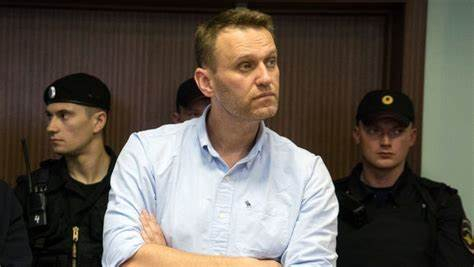Just a day after Alexei Navalny, once regarded as Vladimir Putin's most prominent political adversary, was observed to be in good health and high spirits, sharing a moment of laughter with his jailer, shocking news of his death emerged. Navalny's body, reportedly discovered with bruising, has sparked fears and suspicions of foul play, with many questioning the involvement of Vladimir Putin in his demise.

On Friday, Russia's prison service announced the death of the activist who had long been a vocal critic of Putin's regime. Western leaders wasted no time in attributing responsibility to the Kremlin leader, citing a pattern of disappearances, imprisonments, and deaths among his opponents.
Navalny played a pivotal role in Russia's emerging pro-democracy movement until he fell victim to an almost fatal poison attack in Germany. Upon his return to Russia, he was promptly arrested on what he claimed were fabricated charges.
The 47-year-old was confined to a penal colony where he ultimately passed away. However, Russian authorities initially refused to release his body to his family, sparking concerns of a potential cover-up. Navalny's team raised alarm bells, suggesting foul play orchestrated by the Kremlin to conceal the truth.
Paramedics in Salekhard, near the Arctic jail where Navalny died, reported finding bruises on his body consistent with convulsions. This development, as reported by The Sun, raised further suspicions surrounding the circumstances of his death.
Navalny's team expressed clear suspicions of foul play, with spokesperson Kira Yarmysh alleging that his body had disappeared. Despite efforts by Navalny's family and legal team to retrieve his body from the morgue, they encountered resistance from Russian authorities, who suddenly demanded a post-mortem examination despite earlier claims that such investigations had been completed.
Ms Yarmysh said: "Alexei's lawyer and his mother have arrived at the Salekhard morgue. It's closed, however, the colony has assured them it's working and Navalny's body is there. The lawyer called the phone number which was on the door. He was told he was the seventh caller today. Alexey's body is not in the morgue."
Yulia Navalnaya, Navalny's widow, made a public appearance in Munich hours after his death was announced, holding Putin and his associates accountable for their actions. Navalny's jovial demeanor just a day before his death added to the shock and disbelief surrounding the news.
The international community reacted swiftly to Navalny's death, with protests erupting worldwide and tributes being destroyed in Russia. Political leaders, including UK Foreign Secretary David Cameron and Labour leader Sir Keir Starmer, condemned the Kremlin's actions and called for a thorough investigation.
US Ambassador Lynne Tracy defied Russian authorities' attempts to suppress memorials dedicated to Navalny, visiting a makeshift shrine in Moscow despite police detaining over 400 people at gatherings in his honor. The Solovetsky Stone, symbolizing political repression, has become a significant site for paying homage to Navalny, underscoring the global impact of his legacy.








